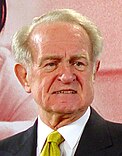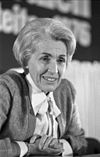
An electoral college is a set of electors who are selected to elect a candidate to a particular office. Often these represent different organizations, political parties, or entities, with each organization, political party or entity represented by a particular number of electors or with votes weighted in a particular way. The system can ignore the wishes of a general membership.

The German Bundesrat is a legislative body that represents the sixteen Länder of Germany at the national level. The Bundesrat meets at the former Prussian House of Lords in Berlin. Its second seat is located in the former West German capital of Bonn.
In Australian history, the term Constitutional Convention refers to four distinct gatherings.
The Federal Convention, also known as the Federal Assembly, is a special constitutional body in the political and federal institutional system of Germany, convened solely for the purpose of electing the President of the Federal Republic of Germany (Bundespräsident), either every five years or within 30 days of the premature termination of a presidential term. The Federal Convention mirrors the aggregated majority situation of the Bundestag and the parliaments of the 16 German federal states.
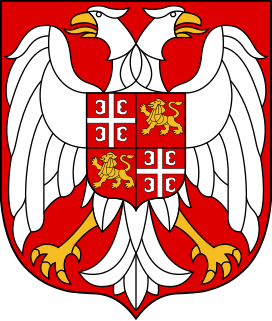
The Federal Republic of Yugoslavia was a union of Serbia and Montenegro which had existed between 1992 and 2003. It was reconstituted as the State Union of Serbia and Montenegro in 2003. In 2006, the state broke up into the two independent states of Serbia and Montenegro.

The Government of Australia is the government of the Commonwealth of Australia, a federal parliamentary constitutional monarchy. It is also commonly referred to as the Australian Government, the Commonwealth Government, Her Majesty's Government, or the Federal Government.
A joint session or joint convention is, most broadly, when two normally separate decision-making groups meet together, often in a special session or other extraordinary meeting, for a specific purpose.
A term of office is the length of time a person serves in a particular elected office. In many jurisdictions there is a defined limit on how long terms of office may be before the officeholder must be subject to re-election. Some jurisdictions exercise term limits, setting a maximum number of terms an individual may hold in a particular office.
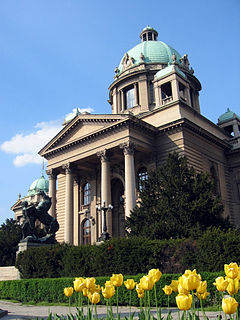
The Parliament of Yugoslavia was the deliberative body of Yugoslavia. Before World War II in the Kingdom of Yugoslavia it was known as the National Assembly, while in the Socialist Federal Republic of Yugoslavia the name was changed to Federal Assembly. It was the official deliberative body of the Yugoslav state, which existed from 1918 to 1992 and resided in the building which now convenes the National Assembly of Serbia.

The Landtag of North Rhine-Westphalia is the state parliament (Landtag) of the German federal state of North Rhine-Westphalia, which convenes in the state capital of Düsseldorf, in the eastern part of the district of Hafen. The parliament is the central legislative body in the political system of North Rhine-Westphalia. In addition to passing of laws, its most important tasks are the election of the Minister-President of the state and the administration of the government. The current parties of government are a coalition of the Christian Democratic Union (CDU) and the Free Democratic Party (FDP), supporting the cabinet of Minister-President Armin Laschet since June 2017.

The German presidential election, 1999 saw the former Social democrat Minister-President of North Rhine-Westphalia defeat Christian democrat Dagmar Schipanski and the nonpartisan academic Uta Ranke-Heinemann, who had been endorsed by the Party of Democratic Socialism.

The 1998 Australian Constitutional Convention was a Constitutional Convention which gathered at Old Parliament House, Canberra from 2 to 3 February 1998. It was called by the Howard Government to discuss whether Australia should become a republic. The convention concluded with "in principle support" for an Australian republic and proposed a model involving appointment of the head of state by Parliament. The model was put to a referendum in November 1999 and rejected by the Australian electorate.

An indirect presidential election was held in West Germany on 23 May 1989. The only candidate was incumbent President Richard von Weizsäcker, who had the support of all four major parties. It is so far the only time that a presidential candidate ran unopposed.

An indirect presidential election was held in West Germany on 23 May 1984. Though not term limited, incumbent Karl Carstens elected not to seek a second term. His Christian Democratic Union instead nominated Richard von Weizsäcker, the Governing Mayor of West Berlin. The Greens, who were represented at the Federal Convention for the first time, nominated author Luise Rinser. The SPD and FDP elected not to nominate candidates. Weizsäcker won the election with 80% of the vote on the first ballot.

An indirect presidential election was held in West Germany on 23 May 1979. Deeming his reelection to be unlikely, incumbent Walter Scheel elected not to seek a second term. The two candidates to replace him were the President of the Bundestag Karl Carstens, nominated by the Christian Democratic Union and Carstens' immediate predecessor Annemarie Renger, nominated by the Social Democratic Party. Carstens won the election on the first ballot.

An indirect presidential election was held in West Germany on 23 May 1974. Though not term limited, incumbent Gustav Heinemann chose not to seek a second term. The government parties nominated Vice-Chancellor Walter Scheel; the Christian Democratic Union nominated Richard von Weizsäcker. Scheel won the election by 32 votes on the first ballot. He served as president until 1979. Weizsäcker would later serve as president from 1984 to 1994.

An indirect presidential election was held in West Germany on 5 March 1969. The incumbent President, Heinrich Lübke had served two terms and was therefore ineligible for a third. The Christian Democratic Union nominated defense minister Gerhard Schröder. Schröder was a controversial choice, even within his own party, since he had been a member of the NSDAP and the SA under Hitler. Other potential candidates included Helmut Kohl and Richard von Weizsäcker, relatively unknown names at the time, who would go on to serve as Chancellor and President respectively. Justice Minister Gustav Heinemann was nominated by the Social Democratic Party and supported by the opposition Free Democratic Party. With neither candidate able to win an absolute majority, Heinemann won the election on the third ballot by only 6 votes.

An indirect presidential election was held in West Germany on 1 July 1964. President Heinrich Lübke was renominated by the Christian Democratic Union. The Free Democratic Party nominated justice minister Ewald Bucher. The Social Democratic Party was divided. The official party line was that they supported President Lübke's re-election. Some have speculated this was a first move towards the grand-coalition that brought Kurt Kiesinger to power two years later. However, the high number of abstentions seems to indicate that not all members of the SPD caucus agreed with this move, as does the fact that Ewald Bucher received at least 19 votes from outside his own party.

An indirect presidential election was held in West Germany on 1 July 1959. For the first time in the Federal Republic, the incumbent president, Theodor Heuss, was not eligible for reelection. In the buildup to the election, Chancellor Konrad Adenauer initially declared his candidacy, but then withdrew for political reasons. The Christian Democratic Union instead nominated Heinrich Lübke. The Social Democrats nominated Carlo Schmid who had been the party's caucus chair at the Parliamentary Council. The Free Democratic Party nominated the chair of its Bundestag caucus, Max Becker. Like the first contested presidential election ten years prior, it took two rounds to determine a winner. Heinrich Lübke fell two vote short of the absolute majority in the first round, winning the election with 526 votes in the second.
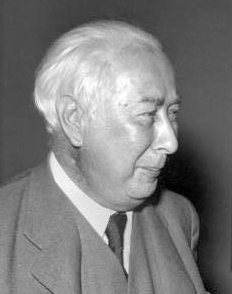
An indirect presidential election was held in West Germany on 17 July 1954. The government parties and the opposition SPD renominated incumbent Theodor Heuss. Against his wishes, the Communist Party of Germany nominated Alfred Weber. Heuss was reelected on the first ballot with about 85% of the vote.



